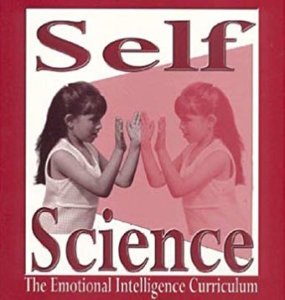
“All learning has an emotional base.” Plato
So many children today grow up in a world of neglect, violence, and despair. Most of America’s youth are at risk. More than half of America’s high school seniors have witnessed violent crimes at school and between three and six children are killed by abuse daily. Our educators are struggling today with little support and few tools to effectively equip students for the climate of trauma and fear.
We have experienced a burst in the scientific study of emotional learning and the functioning of the brain and have a more accurate insight into the processes of learning, feeling, and thinking.
Self-Science is a valuable, effective approach to building a vital set of skills and understandings. The value of Self-Science has been proven in practice and in research. In his bestselling book, Emotional Intelligence, Daniel Goldman calls this program “a model for the teaching of emotional intelligence” as one of the two curricula he recommends.
Self-Science is designed to build emotional intelligence and to develop a learning community that fosters respect, responsibility, and resiliency.
Fundamental skills the program teaches:
Recognize, understand, communicate, and manage feelings.
Recognize and redirect patterns of behavior.
Set goals and move toward them.
Increase respectful communication, thinking, and behaviors.
Results from Implementing the Emotional Intelligence curriculum are:
Higher motivation
More creativity
Higher academic achievement
Greater safety and inclusion and less violence
More accountability
Better relationships
Improved social skills
Increased lifelong success
For teachers, improved EQ skills increase “on task” behaviors and reduce discipline problems
We have not learned how to make quality of life, joy, purpose, and connection a part of our daily lives. Our society is faced with overwhelming problems of poverty, violence, racism, and selfishness.
Children need to be equipped with tools to grow strong despite the negativity that surrounds them. They need strategies to manage themselves and to reshape their society.
Schools cannot replace family, church, or other cultural systems that historically have shaped the integrity and morality of children. Given our current situation schools need to help reinforce the principles that we all share as a society.
The U.S. is the only country on the entire planet that does not have either a religious context for instruction or a values program as a framework/foundation. It is essential that schools support the learning of parental and community values and the universal principles of our society.
The Self-Science curriculum is based on some very simple assumptions:
The more conscious one is of experiencing, the greater the potential for self-knowledge. The more self-knowledge one gains, the more likely it is that one can respond positively to one’s self and others.
These assumptions are based upon a careful and critical study of respected research in the area of affective education. Eclectic in origin, Self-Science draws principally from 30 years of practice along with research on learning and development; Seligman’s studies of optimism; Maslow’s hierarchy of needs; Kelly’s psychology of personal constructs; child personality and development studies; Neuro-Lingusitic Programming; and scientific methods of inquiry.
Emotions are not in the way of learning, but they are the route to learning. Emotions are not peripheral, but they are central to being human. Perhaps most satisfying for educators, emotional skills are learnable.The following is an great website to learn a lot more.
The Emotional Intelligence Network
Six Seconds is a research and practice organization that supports educators who wish to make SEL(social-emotional Learning) part of their school environment. We do this by:
- Conducting, supporting, and sharing research on effective implementation of social emotional learning.
- Encouraging effective SEL implementation through Benchmarks for Social Emotional Learning.
- Supporting additional research through Six Seconds’ Grants.
- Equipping educators and faculty withcertification training in tools and processes to fully integrate SEL.
- Connecting the community of emotional intelligence change makers.
